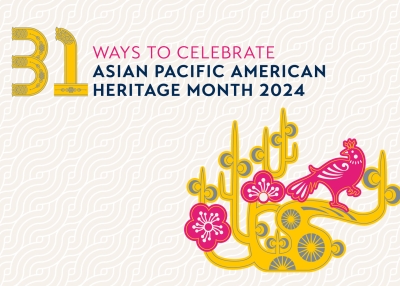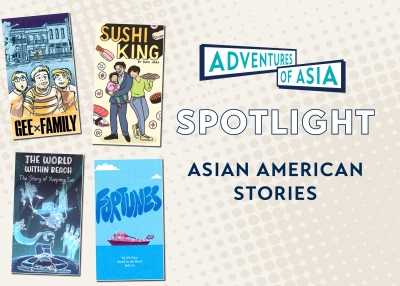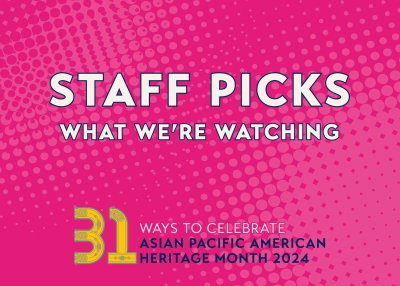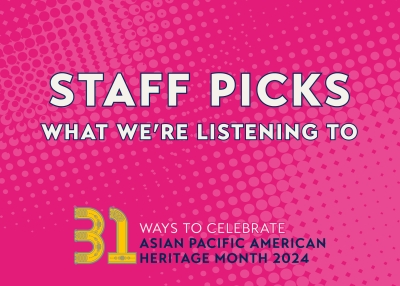Asia Society CEO and President Kevin Rudd Discusses the Belt and Road Initiative, Shifting Dynamics of U.S.-China Relations
Asia Society at Home
Learn More
HOUSTON, September 20, 2021 — Asia Society Texas was honored to welcome Kevin Rudd, President and CEO of the Asia Society and Asia Society Policy Institute, for a discussion about China’s Belt and Road Initiative (BRI) in partnership with the Harvard Business School Club of Houston. Rudd spoke with moderator Charles Foster, Foster LLP Chairman and Asia Society Texas Center Lifetime Director, regarding the concerns and criticisms surrounding BRI, as well as the economic and security implications it has raised for the U.S. and Western countries amid the shifting balance of power between China and the U.S.
Competing perspectives on the Belt and Road Initiative
Rudd began by explaining China’s thesis for launching the BRI, which was to establish the basic economic infrastructure that would lay long-term foundation for economic growth across Eurasia. For Beijing, Rudd indicated, this would achieve three goals: (1) create enormous business opportunities for Chinese infrastructure companies; (2) create long-term economic partners for China; and (3) stabilize a region where Islamist militantism, in China’s view, presented a threat to China’s security. Rudd emphasized the scale of BRI, which translates to between $1 trillion and $3 trillion of Chinese investment around the world and dwarfs all other similar infrastructure investments, such as those by the European Bank for Reconstruction and Development or the U.S. BUILD Act.
However, Rudd also pointed out the criticisms the BRI faces, such as debt exposure for recipient countries, the quality of products built, failure to transfer skills through the projects, a lack of financial transparency, and the potential security and military threats posed by Chinese-built infrastructure. He noted that some criticisms were perhaps more justified than others, highlighting in particular his concern around countries such as Sri Lanka, which fell behind in BRI repayments due to the pandemic, and the resulting leverage China had in asking for repayment in other forms — such as a 99-year lease on a Sri Lankan port. Rudd indicated that Australia has expressed concern for the Pacific Island nations in its vicinity, who have been similarly exposed to Chinese debt through BRI over the past 5-7 years, and the potential security threat this may pose should China leverage the debt for military purposes.
The changing balance of power
In light of those security concerns, Australia, the United Kingdom, and the U.S. this week signed an agreement on the shared development and operation of nuclear submarines, called AUKUS. Rudd noted the agreement occurred amid the complex dynamics of the changing balance of power between China and the U.S. in East Asia and the Pacific. He explained that China has displayed increasingly assertive security behavior under current president Xi Jinping, particularly over the past four years when the U.S. was seen as having retreated from the global stage.
According to Rudd, dynamics in the region tend to go in either of two directions: countries either will join with other powers (e.g. the U.S.) to help balance against China’s growing influence, or countries will “bandwagon” with China given its rising power in the region and globally. The former now includes Japan, Australia, and India, who joined together with the U.S. to form the Quadrilateral Security Dialogue, while the latter includes Laos, Cambodia, and Pakistan. Rudd said a number of other countries, such as Myanmar, Sri Lanka, Thailand, and the Philippines, continue to observe the shifting dynamics and remain noncommittal between China and the U.S. for the moment, choosing to collaborate with both strategically.
Help Us Build a More Inclusive World
Future of U.S.–China relations
In the face of the changing realities of U.S.–China dynamics, Rudd spoke to the need for both governments to assume a new framework for the relationship. He suggested what he calls “Managed Strategic Competition,” which has three main tenets: private agreement on both sides regarding their uncrossable red lines and how to monitor and enforce those to avoid crisis and war; beyond those red lines, strategic competition between U.S. and China on all other aspects including trade, technology, and human rights; and strategic cooperation on defined issues where both countries share a national interest, such as climate change and global debt management.
Specifically, Rudd also encouraged the U.S. to seriously reexamine its economic and trade strategy, and emphasized the importance of implementing a pan-Pacific free trade agreement (such as the CPTPP) to counter the gravitational pull of China’s market. The size of China’s economic clout, Rudd explained, will ultimately cause the region to be much more accommodating of China’s long-term foreign policy and national security interests.
Despite current challenges, Rudd noted that he is optimistic about the future of the relationship. “It’s a very uncertain century that lies ahead,” Rudd said, but in his view, much of China’s behavior now is driven by domestic politics and Xi’s strategic deployment of nationalism against the U.S. to ensure his reelection to a third — and possibly lifetime — term in November 2022. If Xi is reappointed, Rudd said there may be new opportunity for managed strategic competition to provide what he described as guardrails to the competitive relationship — ones that can prevent escalation into an avoidable war.
Business and Policy programs are endowed by Huffington Foundation. We give special thanks to Bank of America, Muffet Blake, Anne and Albert Chao, ConocoPhillips, ExxonMobil, Nancy Pollok Guinee, and United Airlines, Presenting Sponsors of Business and Policy programs; Nancy C. Allen, Chinhui Juhn and Eddie Allen, and Leslie and Brad Bucher, Presenting Sponsors of Exhibitions; AARP, Sterling Turner Foundation, and Wells Fargo, Presenting Sponsors of Education & Outreach; and Mitsubishi Corporation (Americas), Sponsor of the Japan Series; and Regions Bank, Title Sponsor for the internship program. General support of programs and exhibitions is provided by The Brown Foundation, Inc., The Hearst Foundation, Inc., Houston Endowment, Inc., the City of Houston through Houston Arts Alliance, McKinsey & Company, Inc., National Endowment for the Arts, Texas Commission on the Arts, and Vinson & Elkins LLP, as well as Friends of Asia Society.
About Asia Society at Home
We are dedicated to continuing our mission of building cross-cultural understanding and uplifting human connectivity. Using digital tools, we bring you content for all ages and conversations that matter, in order to spark curiosity about Asia and to foster empathy.
About Asia Society Texas Center
Asia Society Texas Center believes in the strength and beauty of diverse perspectives and people. As an educational institution, we advance cultural exchange by celebrating the vibrant diversity of Asia, inspiring empathy, and fostering a better understanding of our interconnected world. Spanning the fields of arts, business, culture, education, and policy, our programming is rooted in the educational and cultural development of our community — trusting in the power of art, dialogue, and ideas to combat bias and build a more inclusive society.





